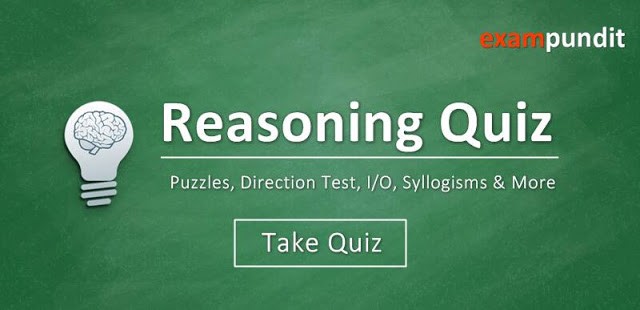
Hello and welcome to exampundit. Here is a set of Analytical Reasoning Quiz for Upcoming IBPS Bank Exams. The following set of questions are moderate level.
following information and five statements given below it carefully and answer
the questions which follow:
urban hubs in search of job opportunities has now declined to nearly twenty-six
percent of what it was at the turn of 21st century.
rural economy has transformed itself into a bankable, profit making and
commercially viable venture.
urban and rural areas.
and resources in the urban areas which had remained unmanageable for a long
time has been eased a little since the last decade.
migration which was seen only in developed countries till now has entered the
scenes of developing nations as well.
more than eighty percent of the professionals having roots in rural areas
prefer to work in urban cities rahter than their home villages.
(A), (B), (C), (D) and (E) mentioned above represents an effect of the given information most appropriately ?
(A), (B), (C), (D) and (E) mentioned above represents a cause of the given information most appropriately ?
(A), (B), (C), (D) and (E) mentioned above represents an assumption most appropriately ? (An assumption is something
supposed or taken for granted)
(A), (B), (C), (D) and (E) mentioned above would weaken / contradict the
facts presented in the paragraph ?
(adsbygoogle = window.adsbygoogle || []).push({});
three arguments numbered I, II and III. You have to decide which of the
argument(s) is/are “strong” and indicate your answer accordingly.
use of electricity for each household depending upon the requirement?
tide over the problem of inadequate generation of electricity.
to consume electricity as per their requirement as they pay for using
electricity.
have the machinery to put such a restriction on use of electricity.
anti-malarial drug for a week. Some of them did not respond to the traditional
drug and their condition deteriorated after four days.
above statement?
to the traditional drugs and recovered were needed to be given additional doses
as they reported relapse of symptoms.
malaria are found to be resistant to traditional malarial drugs.
suffering from malaria responded well to the traditional malarial drugs and
recovered from the illness.
stopped manufacturing traditional malarial drugs.
cent less than the cost of manufacturing cars in state B. Even after
transportation fee for the differential distances of states A and B and the
interstate taxes, it is cheaper to manufacture cars in state B than state A for
selling these cars in State C.
above statement?
from state A to state C is more than thirty per cent of the production cost.
in state B are lower in comparison to state A.
more for the products originated in state A
for the products originated in state B
cost of cars from state B to state C and entry tax of cars at state C is less
than thirty per cent of the production cost of cars in state B.
in offices for personal use should totally be banned. It has been found in a
research study that there was significant drop in output of employees in the
organisation where use of cell phones was liberally allowed vis-a-vis those
organizations where use of cell phones are banned for making personal calls.
statement?
talking while using cell phone for personal calls.
common in all the organizations.
employees were allowed to use cell phones for making personal calls the
employees are found to be more motivated to carry out their duties than those
working in other organizations.
provide cell phones to their employees for making official calls advise them to
refrain from making personal calls during office hours
(adsbygoogle = window.adsbygoogle || []).push({});
Answers:
1. (b) Statement (C) is the effect.
2. (e) Statement (A) is the cause.
3. (e) Statement (D) is an assumption.
4. (e) Statement (E) contradicts the facts stated in the
paragraph.
5. (c) Shortage of electricity can only lee faced with saving
in electricity. So argument I seems to be strong.
Argument II is also strong because every citizen is
paying every single unit of electricity so he/she has
right to consume it. Argument III seems to be weak
because government can earily manage restricted use
of electricity.
6. (c) Statement (c) would weaken the findings that some
of the patients did not respond to the traditional drug
meant for malria.
7. (e) Data given is conclusion (e) is in favour of findings
given in the statement.
8. (c) Statement (c) is just opposites of findings given in
statement because the organisations where employees
are allowed to use cell phones their work-efficiency
is reduced considerably
- IBPS RRB Assistant 2017 – Free Mock Test
- IBPS PO & Clerk 2017 – Free Mock Test
- IBPS RRB Officer 2017 – Free Mock Test
- UIIC Assistant 2017- Free Mock Test
- OICL AO 2017 – Free Mock Test
(adsbygoogle = window.adsbygoogle || []).push({});
Regards
Team ExamPundit


